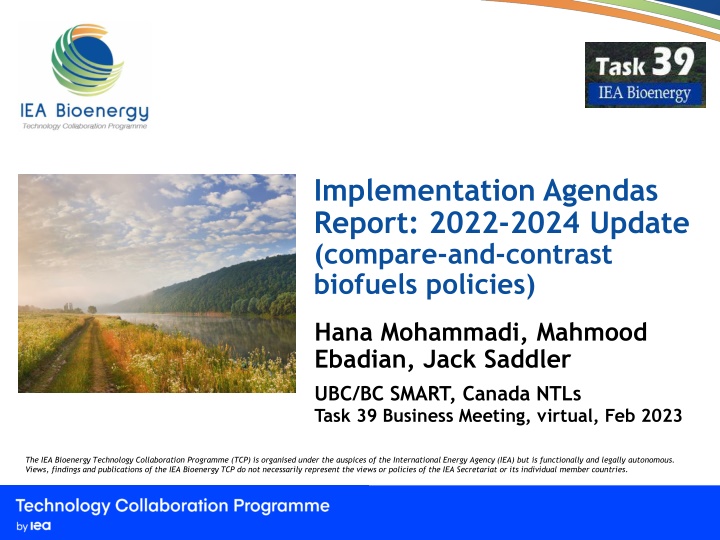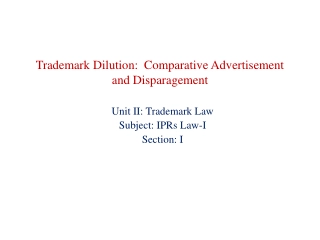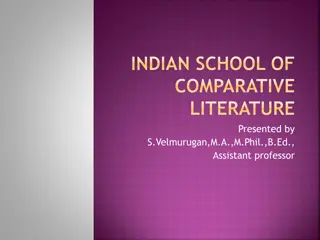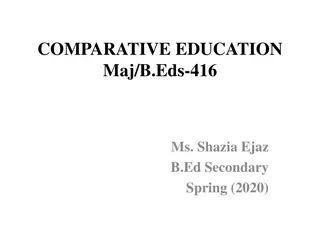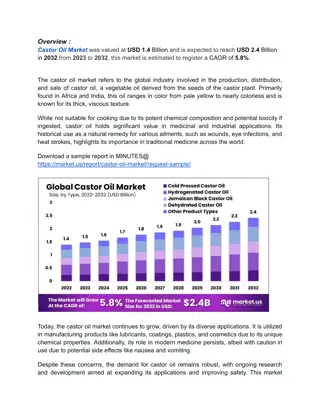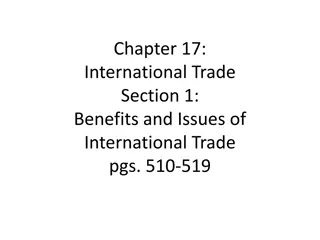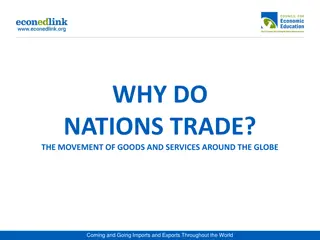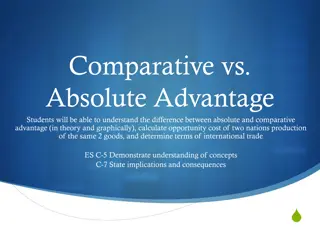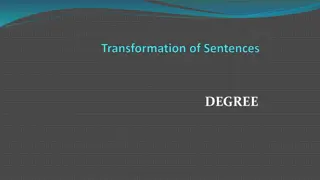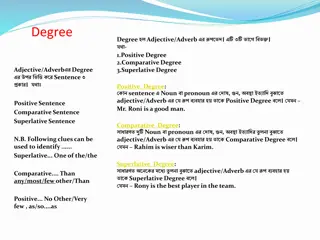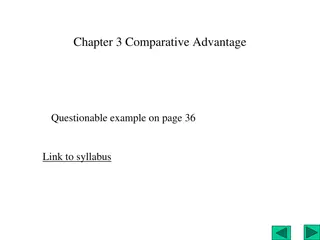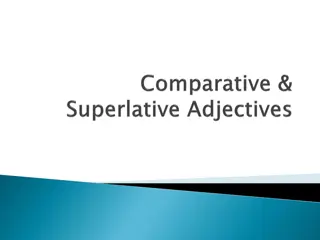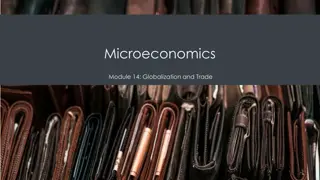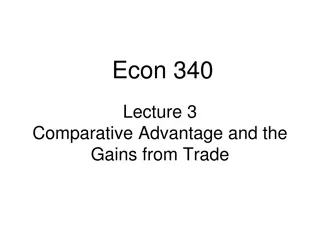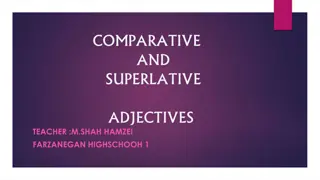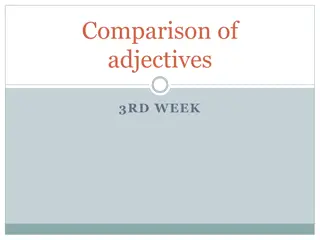Analysis of Biofuel Policies: A Comparative Review 2022-2024
The Implementation Agendas Report of 2022-2024 compares and contrasts biofuel policies, focusing on market-pull and technology-push strategies. Task 39 of IEA Bioenergy assesses member countries' efforts in biofuel sector development. The report seeks to evaluate the effectiveness of policies in promoting transport biofuels production and usage. Updates include new sections on LCA models, sustainability measures, and certification schemes. Notable examples like the US Inflation Reduction Act showcase support for low-emission aviation technologies and biofuel tax credits.
Download Presentation

Please find below an Image/Link to download the presentation.
The content on the website is provided AS IS for your information and personal use only. It may not be sold, licensed, or shared on other websites without obtaining consent from the author.If you encounter any issues during the download, it is possible that the publisher has removed the file from their server.
You are allowed to download the files provided on this website for personal or commercial use, subject to the condition that they are used lawfully. All files are the property of their respective owners.
The content on the website is provided AS IS for your information and personal use only. It may not be sold, licensed, or shared on other websites without obtaining consent from the author.
E N D
Presentation Transcript
Implementation Agendas Report: 2022-2024 Update (compare-and-contrast biofuels policies) Hana Mohammadi, Mahmood Ebadian, Jack Saddler UBC/BC SMART, Canada NTLs Task 39 Business Meeting, virtual, Feb 2023 The IEA Bioenergy Technology Collaboration Programme (TCP) is organised under the auspices of the International Energy Agency (IEA) but is functionally and legally autonomous. Views, findings and publications of the IEA Bioenergy TCP do not necessarily represent the views or policies of the IEA Secretariat or its individual member countries.
Implementation Agendas Report Since 2007, IEA Bioenergy Task 39 has been assessing the measures taken by its member countries to develop or stimulate their respective biofuels sectors, with the particular focus on biofuel policies Six updates of the report have been published by Task 39 in the past including 2007, 2009, 2014, 2017, 2019 and 2021 updates. The overall goal of the report is to determine the extent to which these policies have been effective in encouraging the production and use of transport biofuels The report compares and contrasts both Market-pull policies and Technology-push policies 2
Progress to date: Updated questionnaire sent out in early January Background: The questionnaire needs to be revisited/revised to reflect ongoing developments in the worlds/Task 39 members biofuels policies and markets. The following sections have been added to the questionnaire: Request for information on the lifecycle analysis (LCA) model that is used in each member country (used to measure the carbon intensity of transportation biofuels) Request for information on specific technology push and market pull policies developed by member countries to promote the decarbonization of long-distance transport sector (particularly rail, aviation, marine, long-distance trucking) Separate section will be added to report on biofuels sustainability measures in member countries Request for information on sustainability requirements/criteria for biofuels environmental performance as well as socio-economic sustainability requirements Request for information on possible approved sustainability certification and/or verification schemes for transport biofuels (compliance under policy frameworks) Please send us your completed questionnaire by 1stApril, 2023 3
US Example: US Inflation Reduction Act (IRA)-August 2022 New tax credit to support the production/use of SAF Supports the development of low-emission aviation technologies. Clean Fuel Production Tax Credit for the production of low-emission transportation fuels. Clean Fuel Production Tax Credit for Carbon Capture Tax credits for clean hydrogen Extends several existing bioenergy and biofuel tax credits (e.g., $1 per gallon blends tax credit for biodiesel and renewable diesel and the second-generation biofuel income tax credit) 4
Canada example: Canadian Clean Fuel Regulations (CFR)/LCA model Clean Fuel Regulations (CFR) is now an integral part of Canada s Climate Plan (used to meet national/international commitments to decarbonize the entire economy). The CFR is a Low Carbon Fuel Standard-type policy. Requires liquid fossil fuels (including gasoline and diesel) to gradually reduce the carbon intensity of the fuels (a decrease of approximately 13% (below 2016 levels) in the carbon intensity of liquid fuels by 2030). About 2.2 billion litres of additional low-carbon-intensity diesel and 700 million litres of additional ethanol will be needed by 2030. Environment and Climate Change Canada (ECCC) has been developing its own LCA model. (To assess the success of the Clean Fuels Regulations) The ECCC LCA model and methodology released in June 2022 (the database/datasets were collected from publicly available sources) 5
EU example: EU Fit for 55 and revised REDII Adopted by the European Commission, July 2021, (the 'fit for 55' package adapts existing climate and energy legislation to meet the new EU objective of a minimum 55% reduction in GHG emissions by 2030). Revision of the Renewable Energy Directive (RED II), to help the EU deliver its new 55 % GHG target. Under RED II, the EU is currently obliged to ensure at least 32% of its energy comes from renewable energy by 2030. The revised REDII sets a new EU target of a minimum 40% share of RES in final energy consumption by 2030, (together with new sectoral targets). The proposed REDII revision replaces the 14% target for renewable energy in transport with a 13% GHG intensity reduction target for transport for 2030. 6
Ongoing work: Updated questionnaire sent to Task 39 country representatives in January o Completed questionnaire from member countries sent to Hana by 1st April 2023 (using revised questionnaire, update recent biofuels development e.g. changes in biofuels policies, biofuels production and use) Project team will aggregate/review the completed questionnaires. The more uniform country chapters will send back to the respective Task 39 country representative for their review, by May/June, 2023 The existing/evolving global biofuels policies and markets will continue to be monitored and documented. e.g.: IRENA, REN21, IEA, etc. Biofuels Digest, Bioenergy Insight Magazine, UFOP, Biomass Magazine, etc. California Air Resource Board (CARB) s Dashboard, European Commission, Brazil s RenovaBio, Canada s Clean Fuel Regulations, British Columbia's Low Carbon Fuels Standard, etc.. o o o 7
